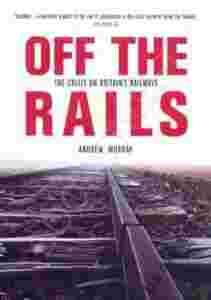|
The train derailment at Hatfield in October 2000,
which cost four lives, prompted a national rethink about
the state of Britain's railways. The crash has been
followed by months of near-paralysis on the system, and
has put privatization under the spotlight as never
before. Off the Rails looks at the disastrous
consequences of private ownership for Britain's railway
network and makes the case for the restoration of the
system to public control. It traces the history of the
privatization process from think-tanks to legislation,
and how British Rail came to be sold off in a hurry in
one hundred different pieces by the Major government,
despite public hostility. It looks at the complex
structure of the privately-owned rail industry and
identifies the main players, showing how they have
failed to work in the public interest. It explains the
conflicting roles of the various regulators, and adds up
money made for shareholders at the taxpayers' expense in
an industry which combines public subsidy with private
profit. Written by an author deeply involved in the
industry, Off the Rails draws extensively on the
testimony of those who work on the railways the train
drivers, maintenance workers, signalers, station staff
and passengers' representatives. The Hatfield crash was
the final straw for the public reputation of the
fragmented railway. The run-up to the disaster and the
chaos afterward are examined in detail, as are the
limitations of the political response from New Labour.
Off the Rails is also a call for change. The book looks
at how public ownership could be reintroduced and
considers other alternatives for renewing the railways.
It also draws on experience in other parts of the world
to make the case that only the restoration of the
railways as a public service can guarantee the safe and
reliable service which passengers expect. |
|

